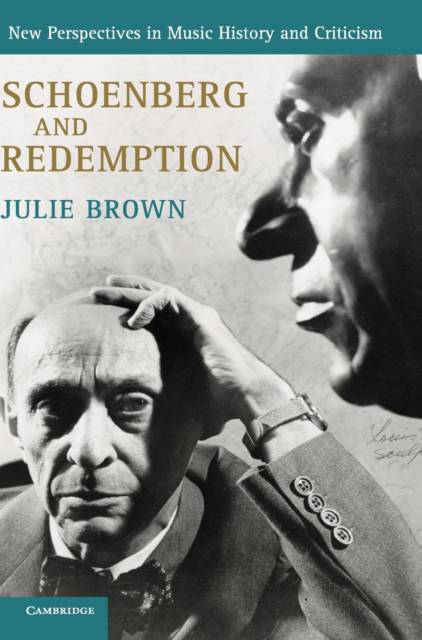
Je cadeautjes zeker op tijd in huis hebben voor de feestdagen? Kom langs in onze winkels en vind het perfecte geschenk!
- Afhalen na 1 uur in een winkel met voorraad
- Gratis thuislevering in België vanaf € 30
- Ruim aanbod met 7 miljoen producten
Je cadeautjes zeker op tijd in huis hebben voor de feestdagen? Kom langs in onze winkels en vind het perfecte geschenk!
- Afhalen na 1 uur in een winkel met voorraad
- Gratis thuislevering in België vanaf € 30
- Ruim aanbod met 7 miljoen producten
Zoeken
Omschrijving
Schoenberg and Redemption presents a new way of understanding Schoenberg's step into atonality in 1908. Reconsidering his threshold and early atonal works, as well as his theoretical writings and a range of previously unexplored archival documents, Julie Brown argues that Schoenberg's revolutionary step was in part a response to Wagner's negative charges concerning the Jewish influence on German music. In 1898, and especially 1908, Schoenberg's Jewish identity came into confrontation with his commitment to Wagnerian modernism to provide an impetus to his radical innovations. While acknowledging the broader turn-of-the-century Viennese context, Brown draws special attention to continuities between Schoenberg's work and that of Viennese moral philosopher Otto Weininger, himself an ideological Wagnerian. She also considers the afterlife of the composer's ideological position when, in the late 1920s and early 1930s, the concept of redeeming German culture of its Jewish elements took a very different turn.
Specificaties
Betrokkenen
- Auteur(s):
- Uitgeverij:
Inhoud
- Aantal bladzijden:
- 274
- Taal:
- Engels
- Reeks:
Eigenschappen
- Productcode (EAN):
- 9780521550352
- Verschijningsdatum:
- 26/06/2014
- Uitvoering:
- Hardcover
- Formaat:
- Genaaid
- Afmetingen:
- 173 mm x 246 mm
- Gewicht:
- 703 g

Alleen bij Standaard Boekhandel
+ 366 punten op je klantenkaart van Standaard Boekhandel
Beoordelingen
We publiceren alleen reviews die voldoen aan de voorwaarden voor reviews. Bekijk onze voorwaarden voor reviews.









